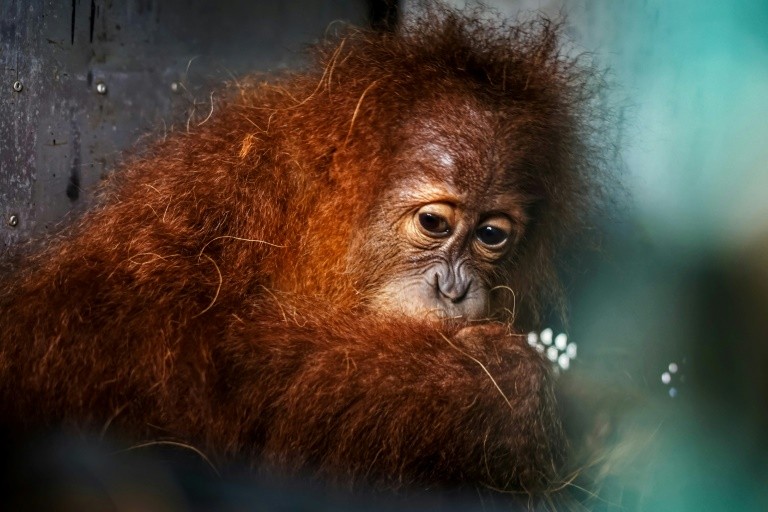
Indonesia's push to add wood-burning to its energy mix and exports is driving deforestation, including in key habitats for endangered species such as orangutans, a report said Thursday.
Bioenergy, which uses organic material like trees to produce power, is considered renewable by the International Energy Agency as carbon released by burning biomass can theoretically be absorbed by planting more trees.
But critics say biomass power plants emit more carbon dioxide per unit of energy produced than modern coal plants, and warn that using biomass to "co-fire" coal plants is just a way to extend the life of the polluting fossil fuel.
Producing the wood pellets and chips used for "co-fire" coal plants also risks driving deforestation, with natural forests cut down and replaced by quick-growing monocultures.
That, according to a report produced by a group of Indonesian and regional NGOs, is exactly what is happening in Indonesia, home to the world's third-largest rainforest area.
"The country's forests face unprecedented threats from the industrial scale projected for biomass demand," said the groups, which include Auriga Nusantara and Earth Insight.
Indonesia's production of wood pellets alone jumped from 20,000 to 330,000 tonnes from 2012 to 2021, the report said.
Auriga Nusantara estimates nearly 10,000 hectares of deforestation has been caused by biomass production in the last four years.
But the report warns that much more is at risk as Indonesia ramps up biomass, particularly in its coal-fired power plants.
The report looked at existing co-firing plants and pulp mills around Indonesia and the 100 kilometres (62 miles) surrounding each.
They estimate more than 10 million hectares of "undisturbed forest" lie within these areas and are at risk of deforestation, many of which "significantly overlap" with the habitat of endangered species.
Animals at risk include orangutans in Sumatra and Borneo, the report said.
Using wood to achieve just a 10 percent reduction in coal at Indonesia's largest power plants "could trigger the deforestation of an area roughly 35 times the size of Jakarta," the report warned.
Indonesia's environment and forestry ministry officials did not immediately respond to AFP's request for comment.
Indonesia saw a 27 percent jump in primary forest loss last year after a downward trend from a peak in 2015-2016, according to the World Resources Institute.
The groups also point the finger at growing demand in South Korea and Japan, two major export destinations for Indonesia's wood pellets.
They urged Indonesia to commit to protecting its remaining natural forest and reform its energy plans to focus on solar, while banning new coal projects.
Japan and South Korea should end biomass incentives and focus on cleaner renewable options, the group urged.
"There are no math tricks that can justify burning forests for energy," the NGOs said.
"Science has clearly proven the vital role of tropical forests for climate stability, biodiversity and human survival."








